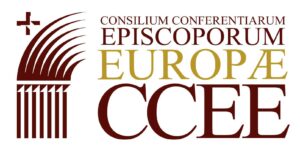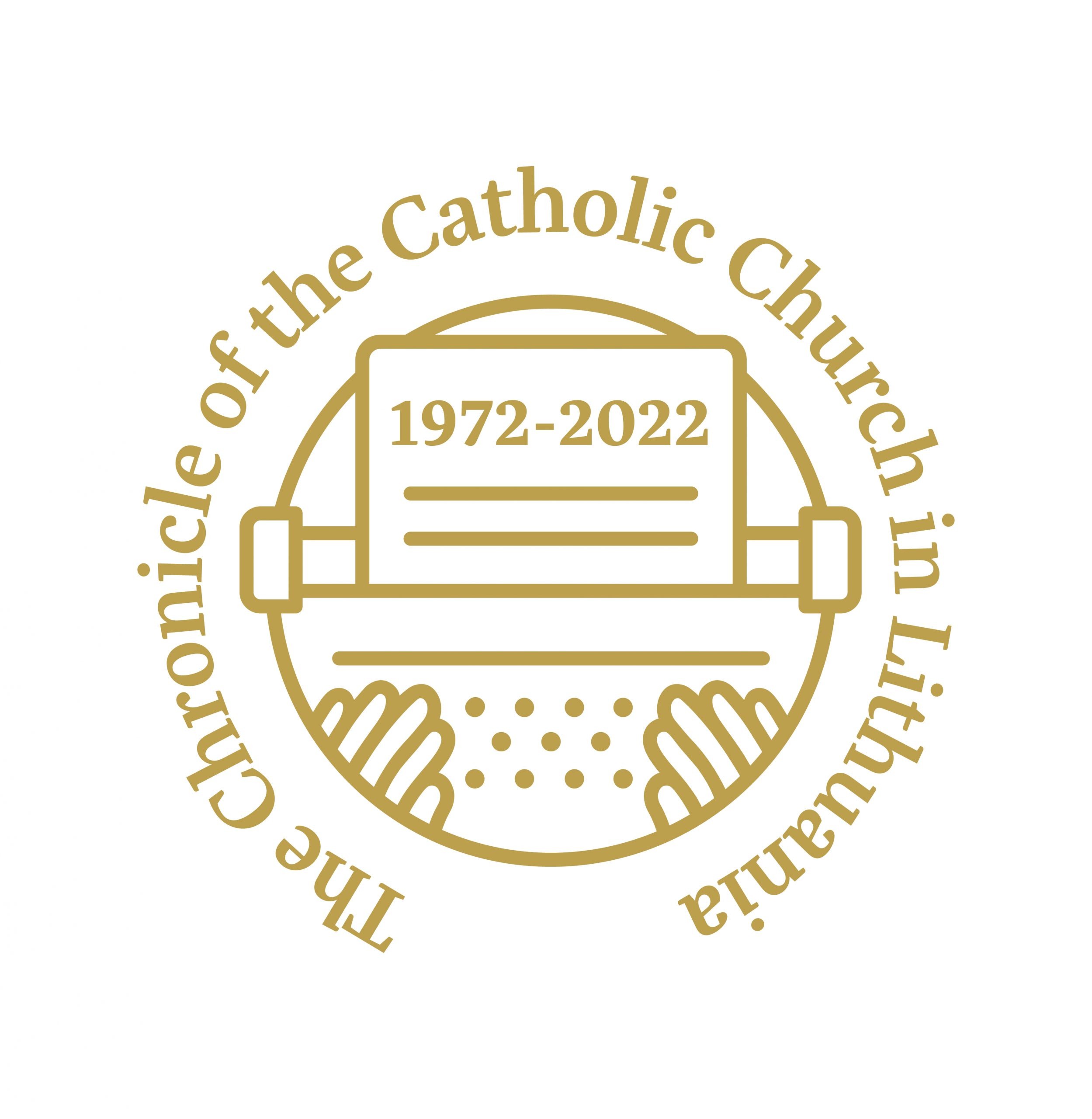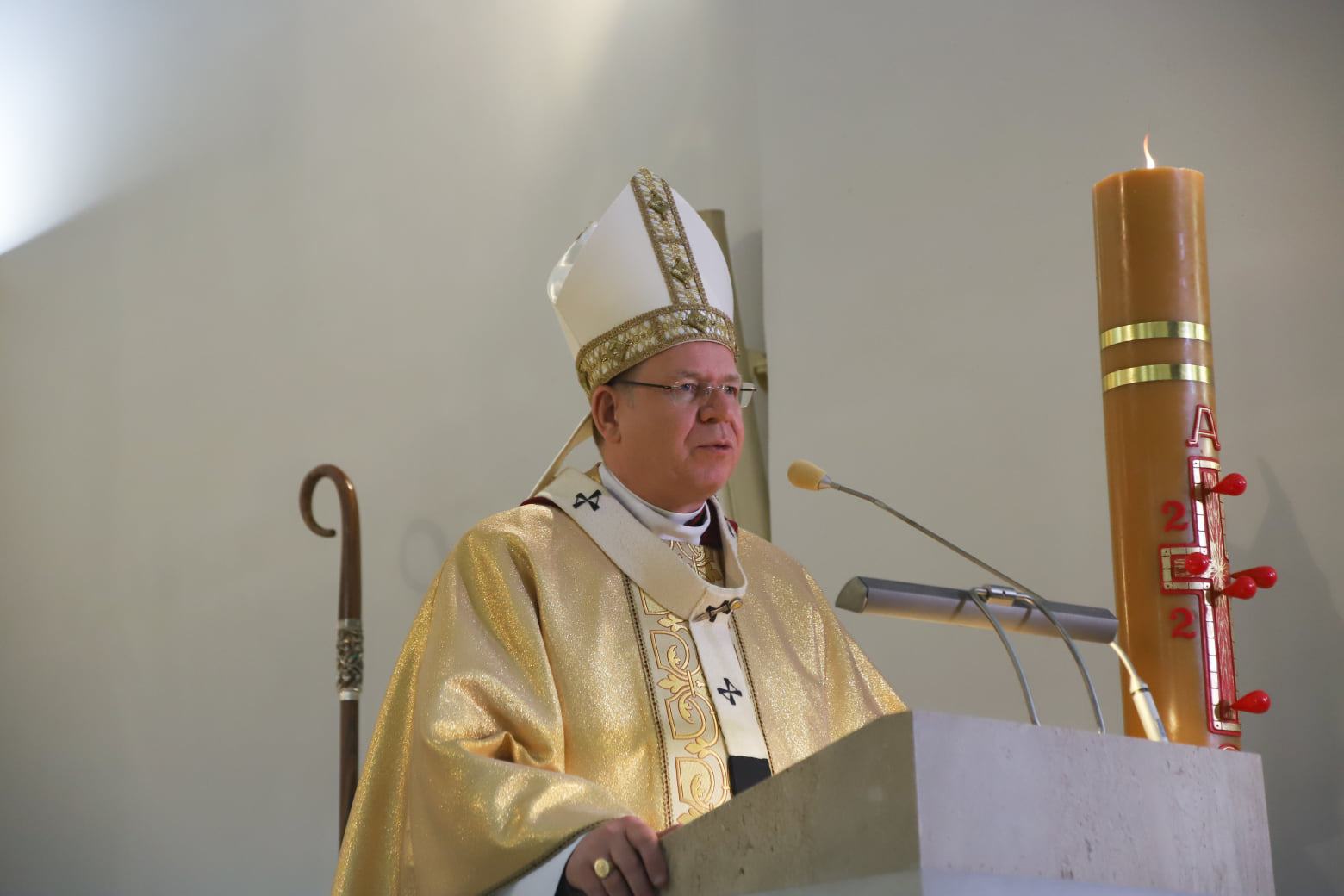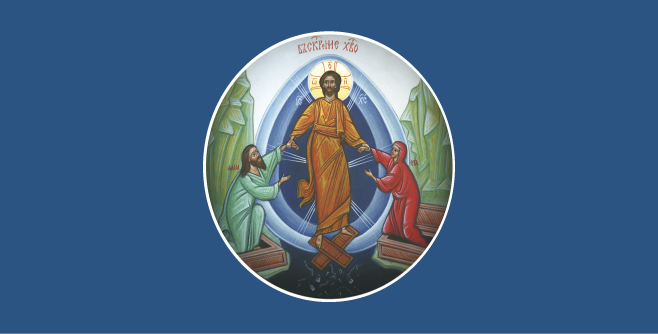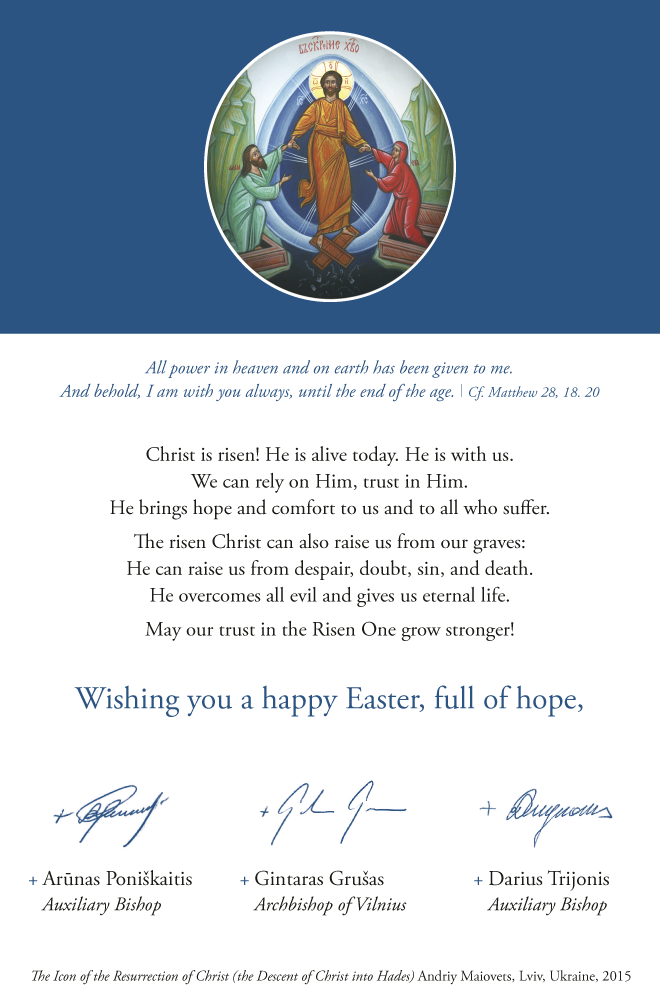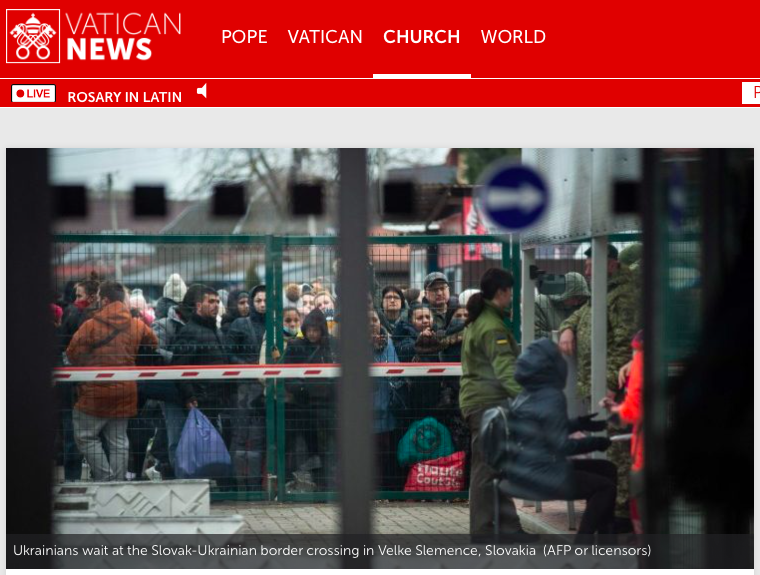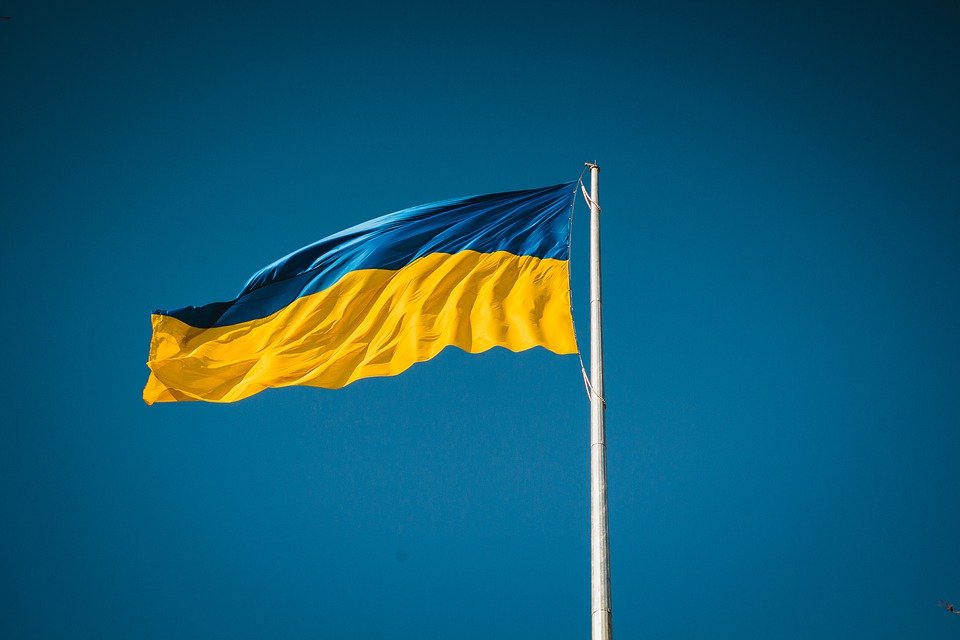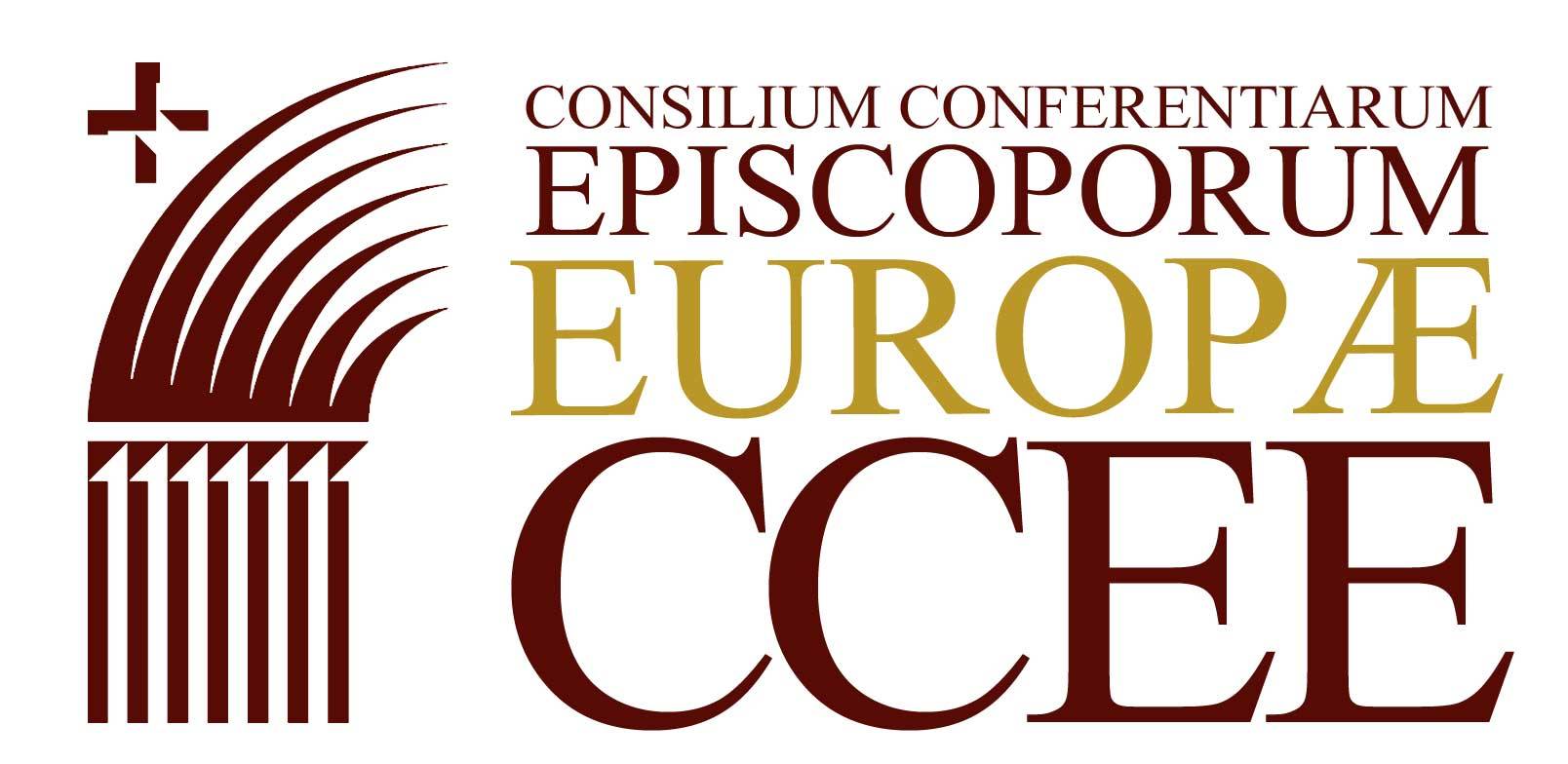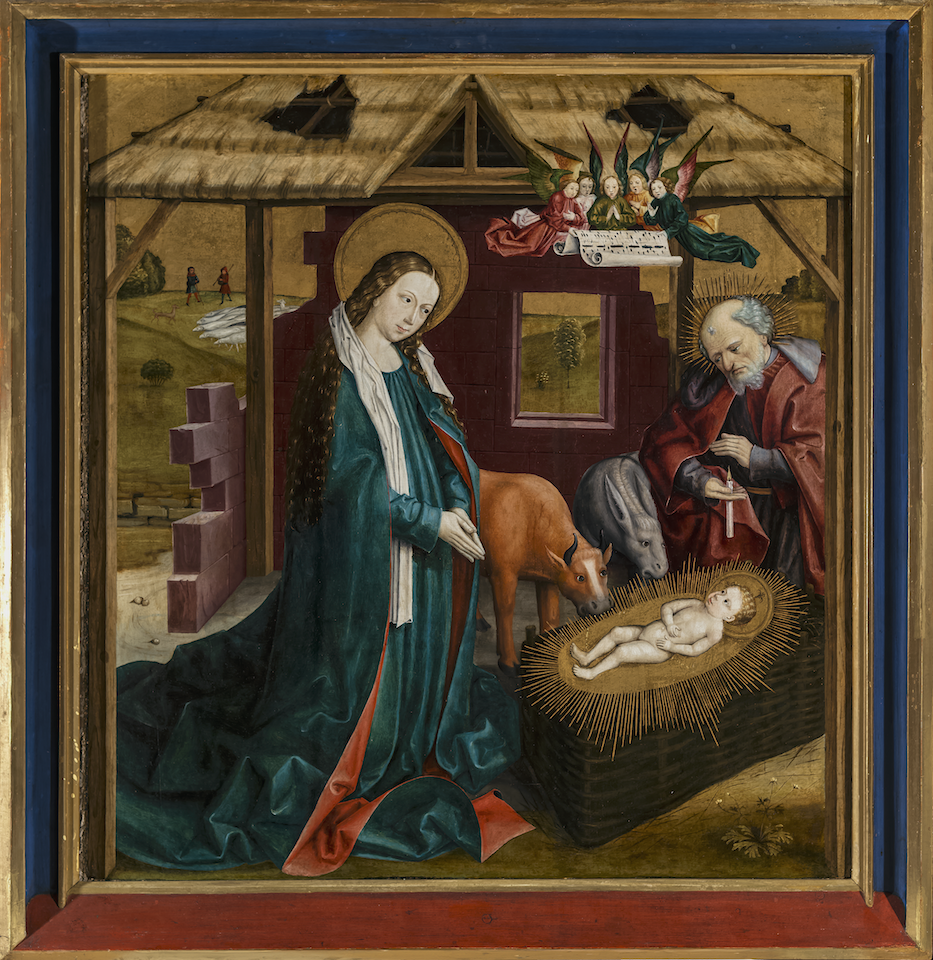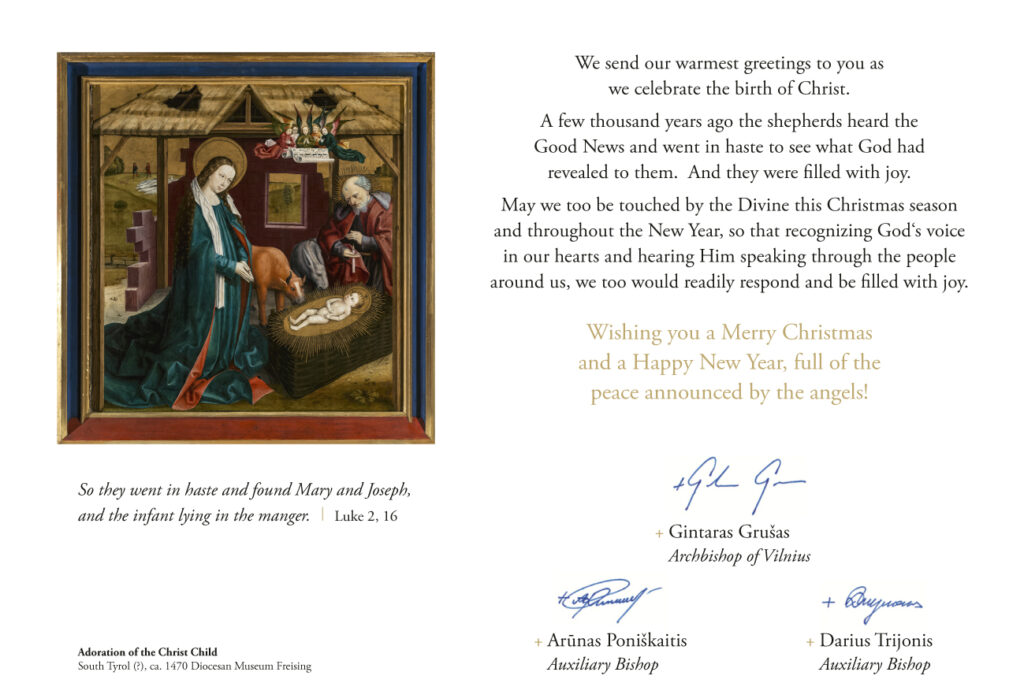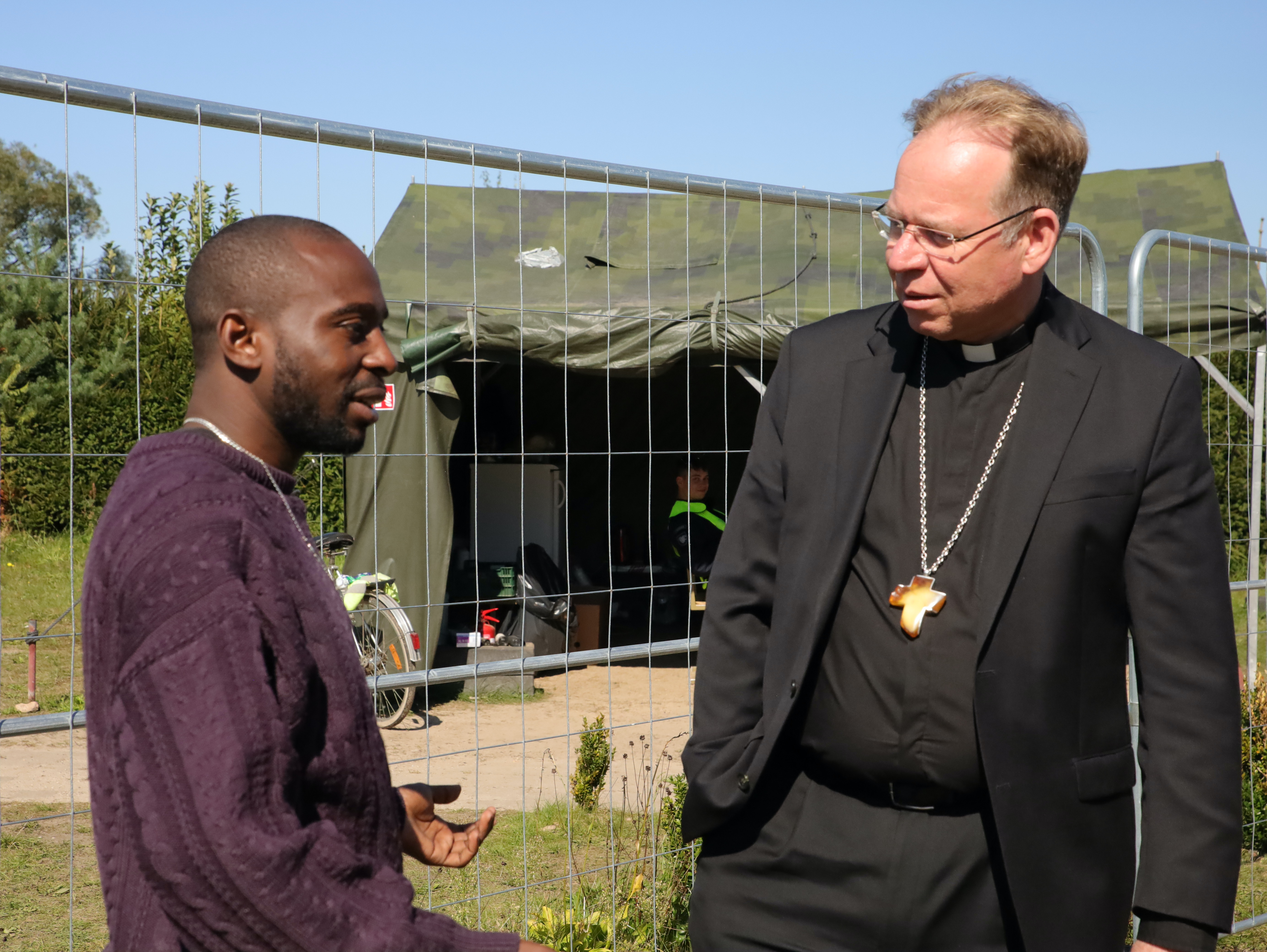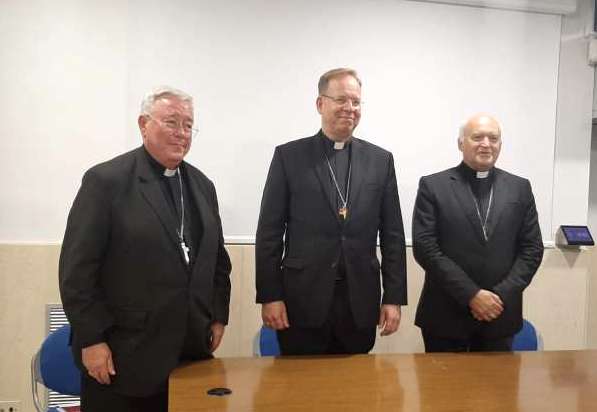Your Excellencies,
Distinguished Authorities,
Dear Monsignor Visvaldas,
Dear Priests and Religious,
Dear Brothers and Sisters in Christ,
I am very pleased to be here in Vilnius for this joyful occasion, the episcopal ordination of Monsignor Visvaldas Kulbokas, whom His Holiness Pope Francis has appointed as Apostolic Nuncio in Ukraine and raised to the rank of Archbishop of the titular See of Martana.
On this eve of the solemnity of the Assumption of the Blessed Virgin Mary, the Church also celebrates the memorial of Saint Maximilian Kolbe, martyred by the Nazis and celebrated for his outstanding devotion to Our Lady. We are gathered in this Cathedral of Saints Stanislaus and Ladislaus, restored to the faithful in 1988, for an event of great joy for the Church in Lithuania, and in a special way for the Diocese of Telsiai and Monsignor Kulbokas’ native town of Klaipeda.
The ordination of a bishop is always a source of joy for the Church, because through the ministry of the apostles and the bishops, their successors, she can appear as most fully herself, endowed with the means of salvation entrusted to her by the Lord. Through the life of each individual bishop, the apostolic ministry continues uninterrupted throughout the generations, enabling the faithful to partake of the abundance of God’s grace.
The ancient rite of the laying on of hands by the consecrating bishops and the other bishops present vividly expresses the face that they are handing down the powers needed for building up the people of God. Through this gesture, familiar from the pages of the Old and New Testaments, the gift of the Holy Spirit is given to the new bishop for the sake of his own interior growth in holiness and for the fulfilment of his new mission. We see this clearly in the prayer of consecration that follows the imposition of hands: “Pour out now upon this chosen one that power which is from you, the governing Spirit, whom you gave to your beloved Son, Jesus Christ, the Spirit whom he bestowed upon the holy Apostles, who established the Church in each place as your sanctuary for the glory and unceasing praise of your name”.
The laying on of hands is also form of blessing. We ask God to bless the new bishop so that he can more readily enable all people to come to Jesus. In the passage from Matthew’s Gospel that we just heard, children were brought to Jesus so “that he might lay his hands on them and pray” (Mt 19:14). The Gospel warns us that we must never become obstacles or – God forbid – stumbling blocks. We must never stand in the way of those who, with the simplicity of children, seek to draw near to Jesus, to encounter him, to listen to his words, to experience his companionship and receive his blessing.
These few considerations suffice to make us appreciate the particular responsibility, burden and dignity proper to bishops. Theirs is the task of proclaiming the Gospel in all wisdom and patience, preserving and faithfully handing down the deposit of faith that they themselves have received. They are called to sanctify the faithful, so that, strengthened by the word of God and the Eucharist, the grace of the sacraments and acts of charity, they can attain the goal of our earthly existence, which is eternal life with God and all his saints. They are charged with governing a portion of the people of God, preserving its unity while ensuring that the rich diversity of its gifts and charisms is valued and encouraged.
In addition, a bishop who is an Apostolic Nuncio also receives the specific task of representing the Pope and the Holy See in those Churches, states and international organizations to which he is sent. He is called to work with commitment, perseverance and apostolic zeal in strengthening the communion between the universal Church and the Particular Churches. It is also his responsibility to keep the Holy Father informed of the life, hopes and difficulties of those Churches, and, in turn, to share with them the encouragement and guidance of the Successor of Peter.
The Holy Father now sends you, dear Monsignor Visvaldas, to Ukraine, where for centuries different Catholic ecclesial communities of the Greek-Byzantine and the Latin rites have lived side-by-side, together with great numbers of the Orthodox faithful. Ukraine is a country where rich and diverse cultures coexist, embracing citizens of various ethnic origins; at the same time, it experiences conflicts difficult to fully overcome.
It will be your primary task to make known the Holy Father’s message of peace and reconciliation, and his encouragement that everyone work generously to find a stable ground for mutual understanding. This is essential for the resolution of the bitter conflicts that have caused so much sorrow and destruction of valuable resources, and the dawn of a new season of cooperation and rebirth in the service of the common good, which is the good of each and of all.
Dear Monsignor Visvaldas, these tasks demand a great sense of responsibility. They can only be carried out well if, with confidence in God’s help and with great humility, you open your heart daily to his grace and devote yourself to constant prayer. A prayer that begins with praise and gratitude to the Lord for all his blessings and then intercedes for the aspirations and sufferings, the hardships and hopes of all God’s people.
Only with the strength that comes from prayer will you discern how to respond to pressing priorities and needs, as a faithful pastor in the image of the Good Shepherd. Only through prayer will your life be shaped by the deepest truths of our faith, so that you can come to see yourself, the Church and the world in the radiant light of God’s holy will and his eternal mercy.
During his meeting with Papal Representatives on 13 June 2019, Pope Francis proposed ten commandments concerning the life and identity of Nuncios. The Holy Father insisted that if a Nuncio wants to carry out the mandate he has received, he must always remember that he is a man of God, a man of the Church and a man of the Pope; a man of apostolic zeal and reconciliation, creativity and obedience; a man of prayer, practical charity and deep humility (cf. Address to the Apostolic Nuncios, 13 June 2019).
May these words of the Holy Father be the hallmark of your life and activity as a Papal Representative. May they help you to go about your duties joyfully, as a man of the Church who, conscious of his need for God’s grace, seeks to obtain that grace through holiness of life.
Dear Monsignor Visvaldas, you have been prepared for the mission entrusted to you by your studies and by serving in the Apostolic Nunciatures in Lebanon, the Netherlands and the Russian Federation, in the Second Section of the Secretariat of State, and finally in the Nunciature in Kenya. During these years, you have had the opportunity to confront the many and complex issues faced by the Church and by states. This is a precious store of knowledge and experience, from which you can draw as you strive to carry out your work with wisdom, competence and prudence.
There is one thing that you will surely have learned in these years. It is what Joshua shows us in the first reading. At the end of his life, Joshua recalled the saving works of God that he had personally experienced: the liberation from slavery in Egypt, the crossing of the Red Sea and the settlement of Israel in the Promised Land. He clearly recognized the unfolding of the divine plan of salvation for his people.
Now, Joshua wants to hand on to all the people the most important lesson of all, which is to fear the Lord and serve him. He therefore has the assembly repeat its promise always to fear and faithfully serve the God whose eternal love they had experienced at first hand. For in truth, the only response to that utterly gracious gift of love is to persevere in the fear of the Lord, ever conscious of his closeness and striving daily to respond to his love.
Monsignor Visvaldas, you have personally experienced the Lord’s loving kindness and, like Joshua, you know that the only fitting response to that great love is to serve him, with constancy and devotion, in all your brothers and sisters.
Saint Maximilian Maria Kolbe learned that lesson well. That is why, filled with apostolic zeal and love for the Blessed Virgin, he bore witness, even to the point of martyrdom, to his faith and his love of God and neighbour.
May the Holy Mary Mother of God, Saint Maximilian Maria Kolbe, and Saints Stanislaus and Ladislaus, bless you and accompany you in your mission, so that you may bring to everyone the sweet fragrance of Christ and be a convincing sign of communion and of peace for all.
Amen.
Cardinal Pietro Parolin
Mass of Episcopal Ordination Of Monsignor Visvaldas Kulbokas Apostolic Nuncio in Ukraine
Cathedral of Saints Stanislaus and Ladislaus
Vilnius, 14 August 2021
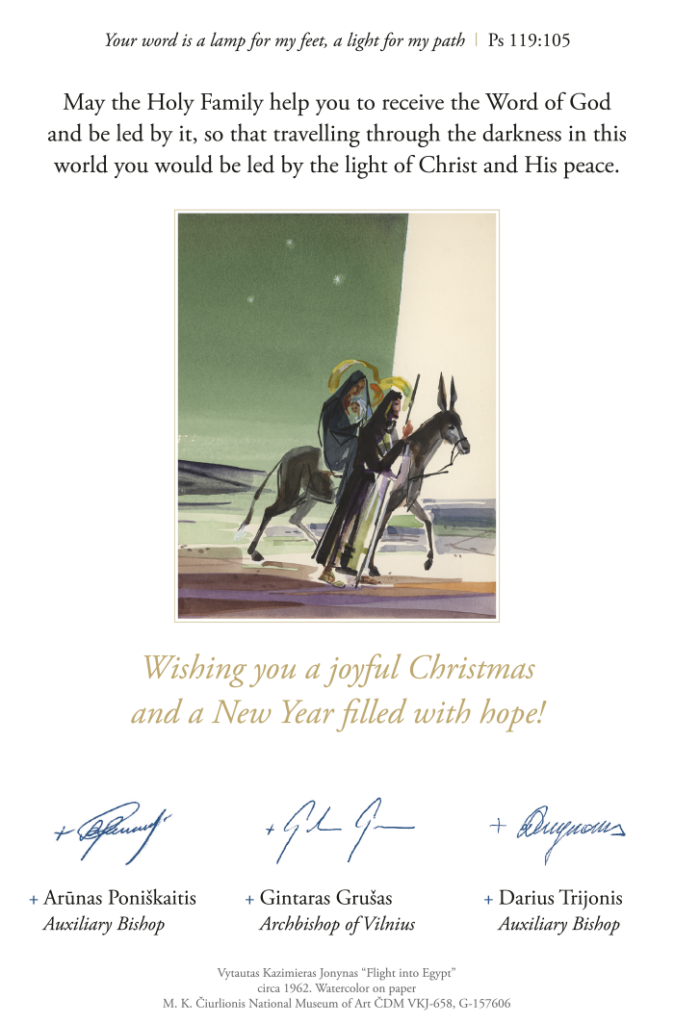
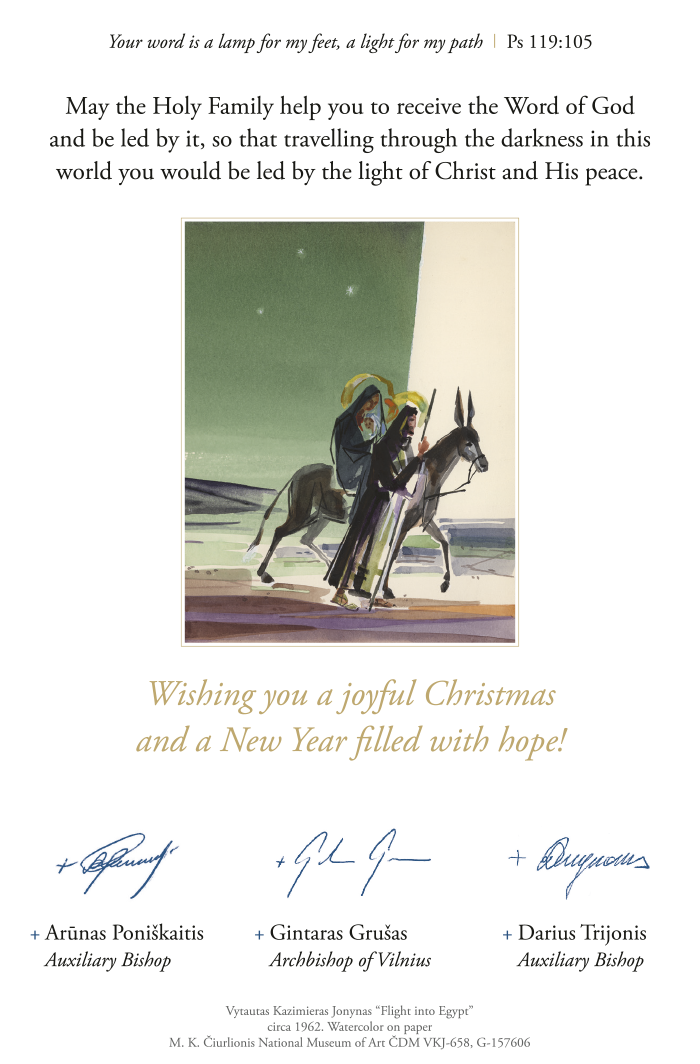
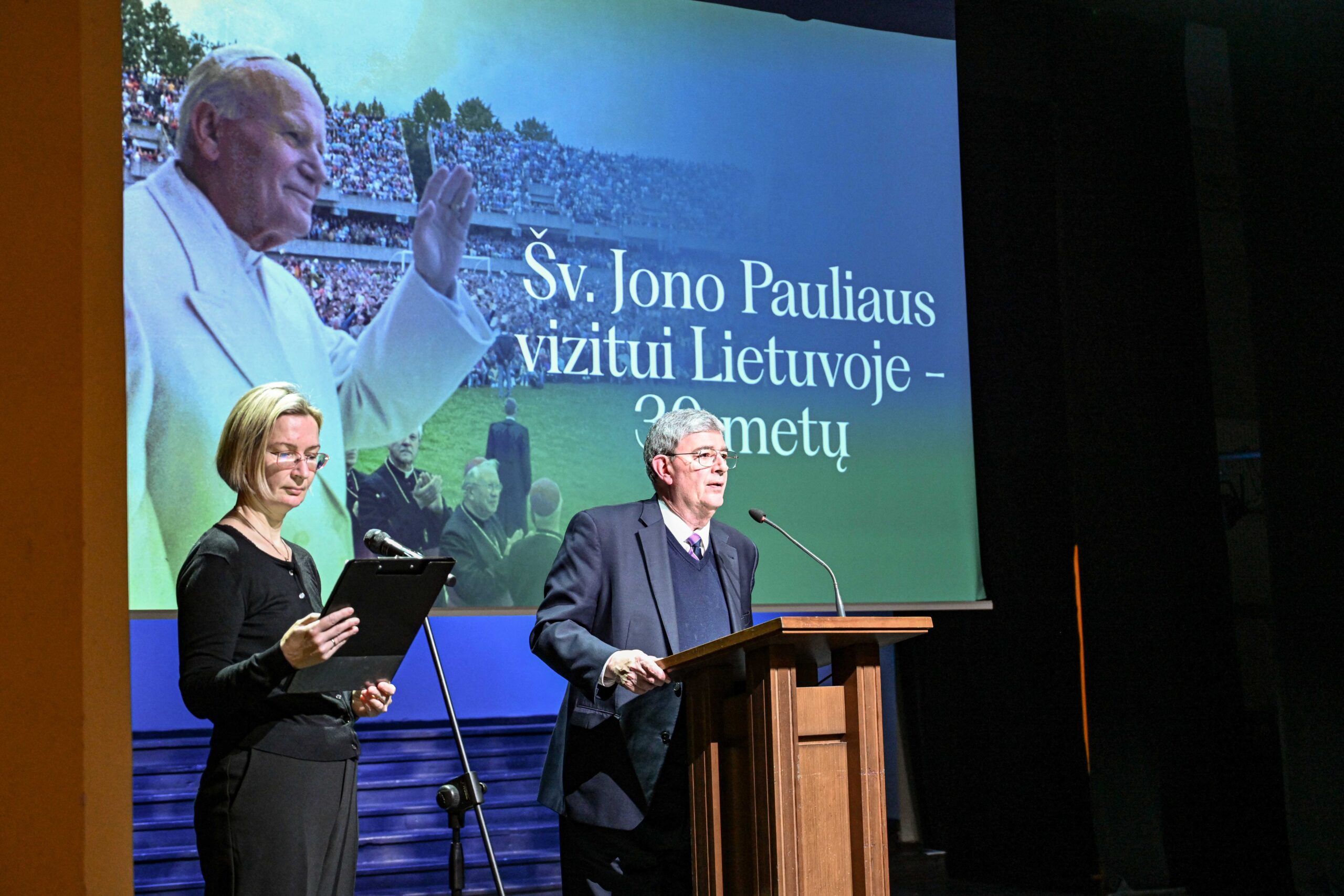
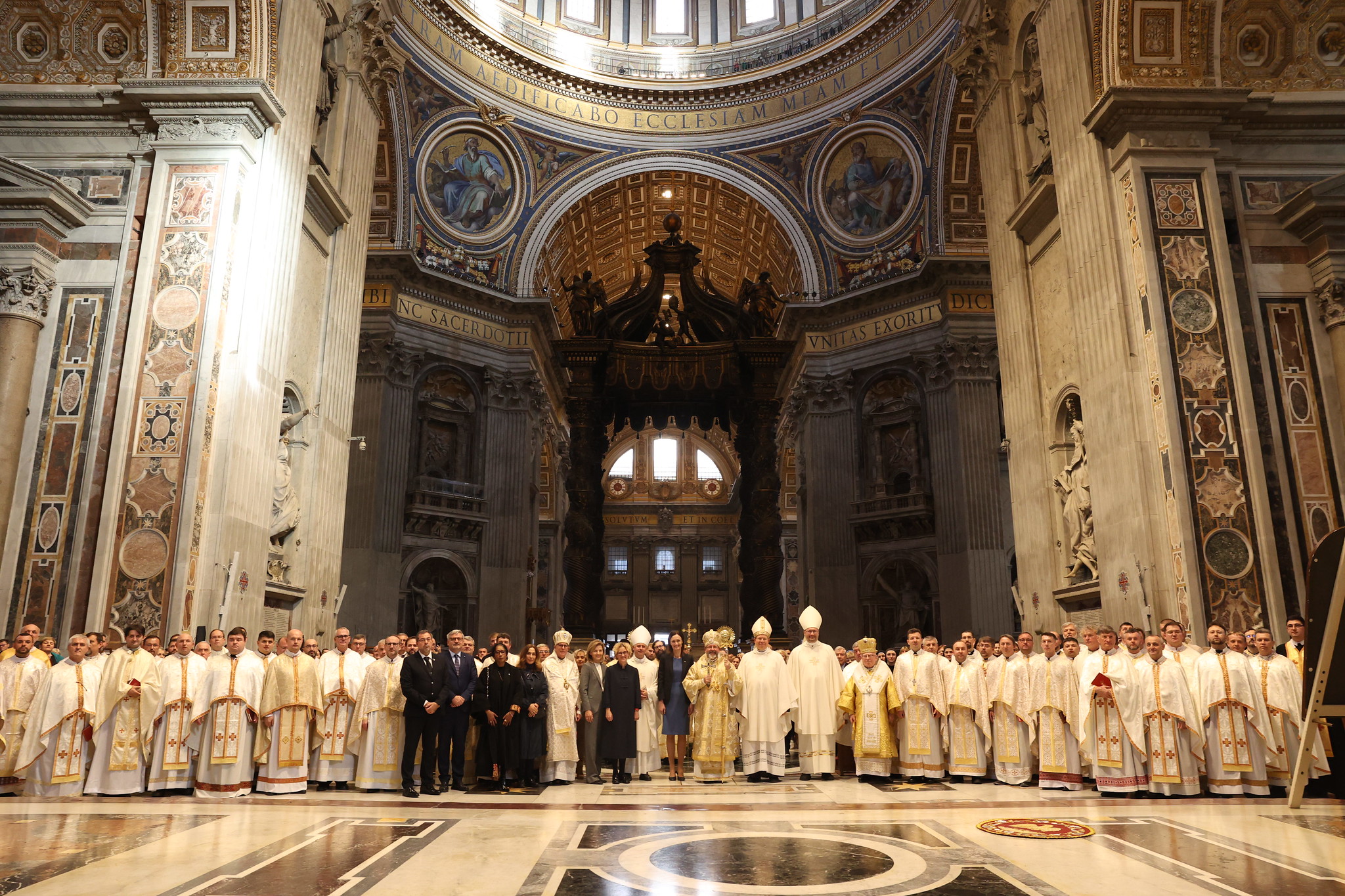
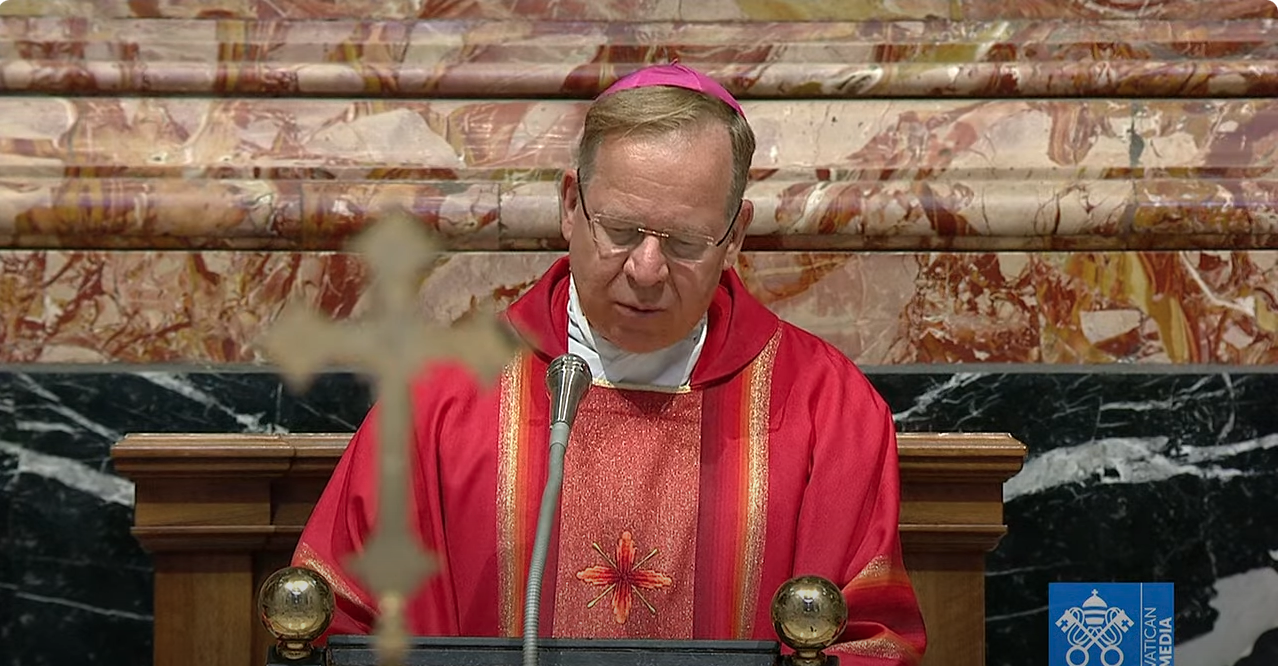
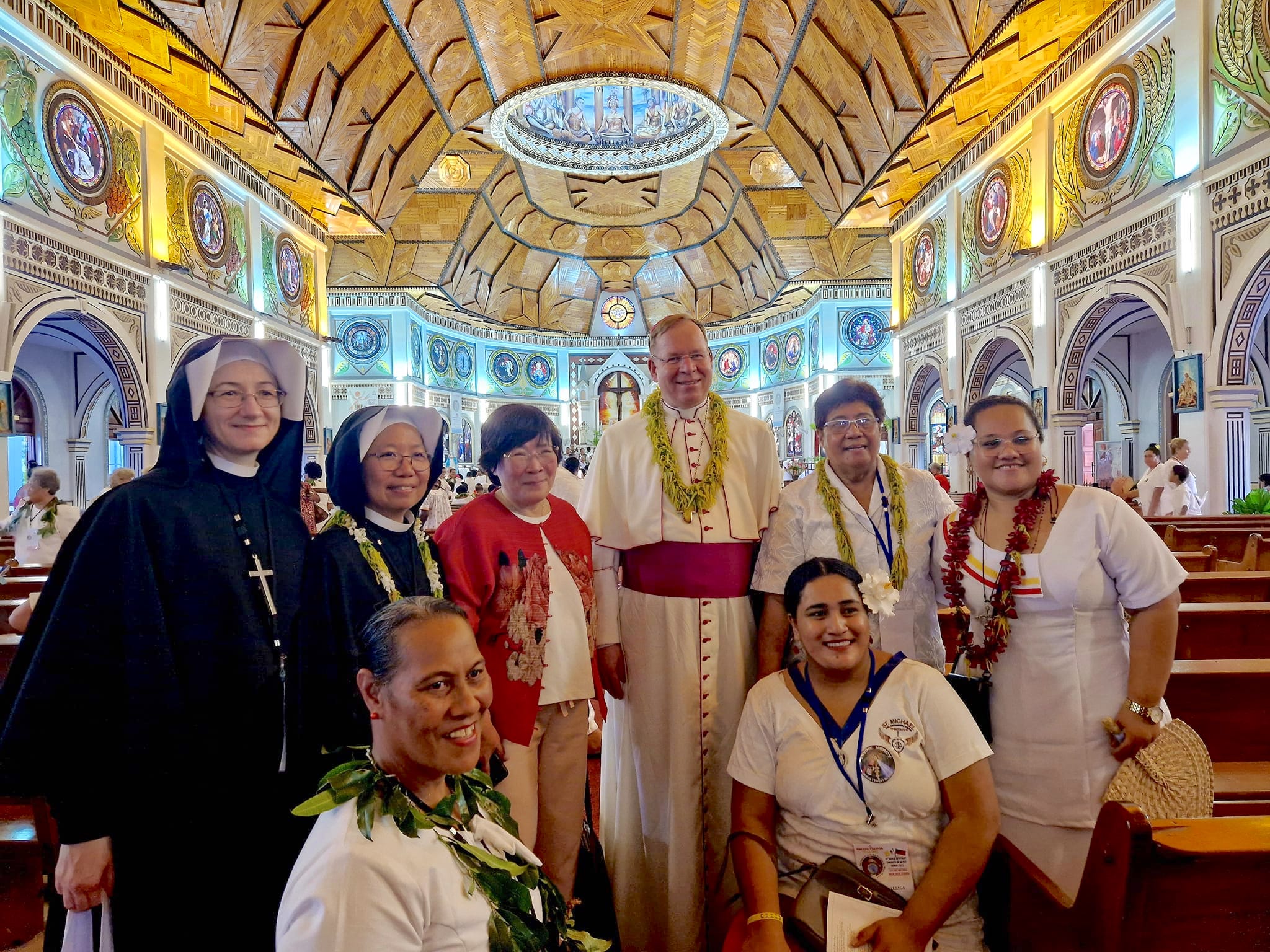
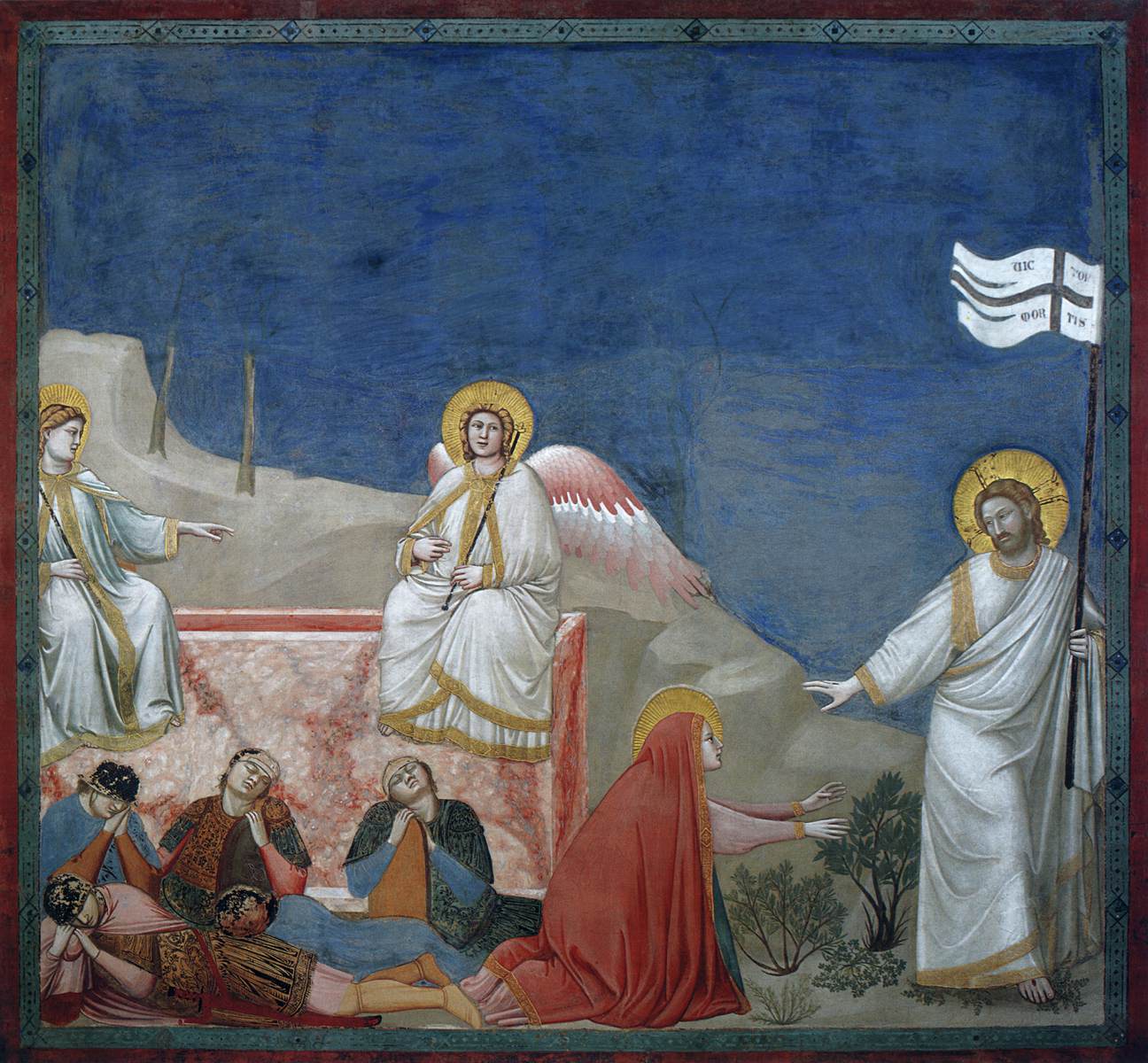
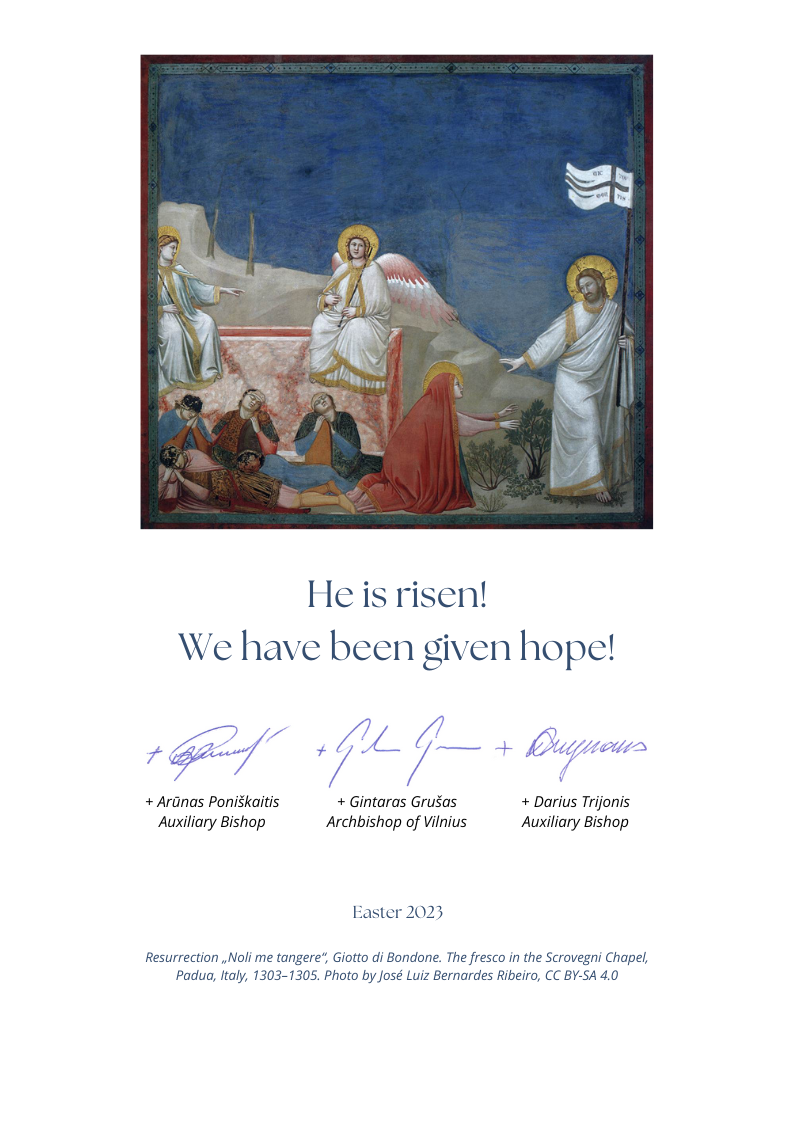
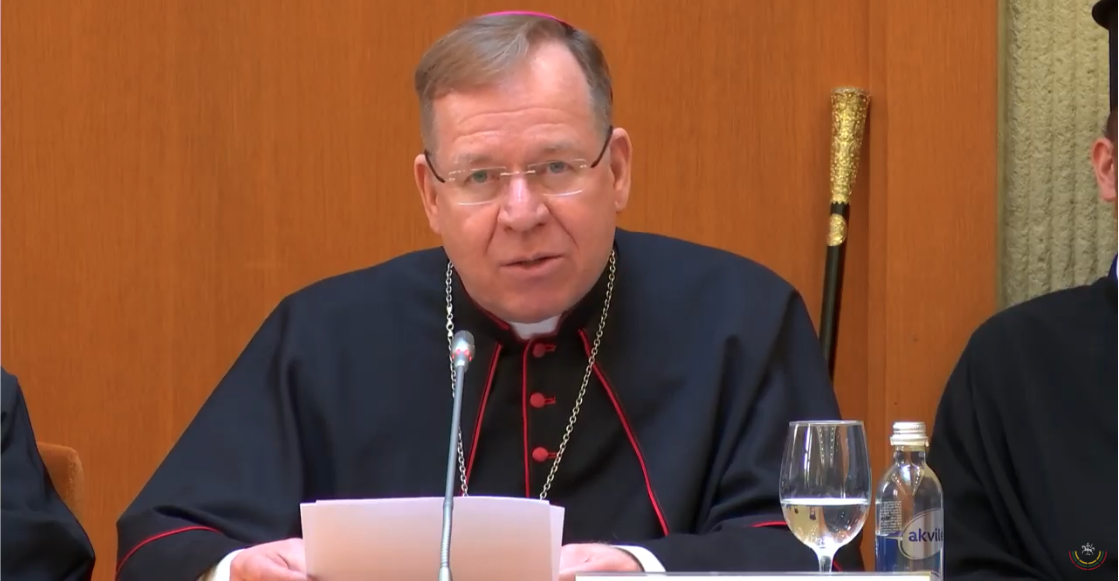
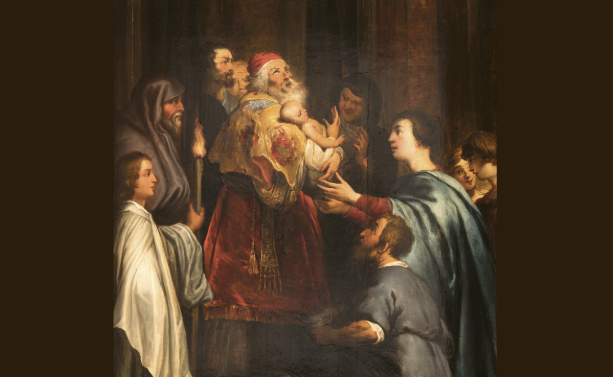
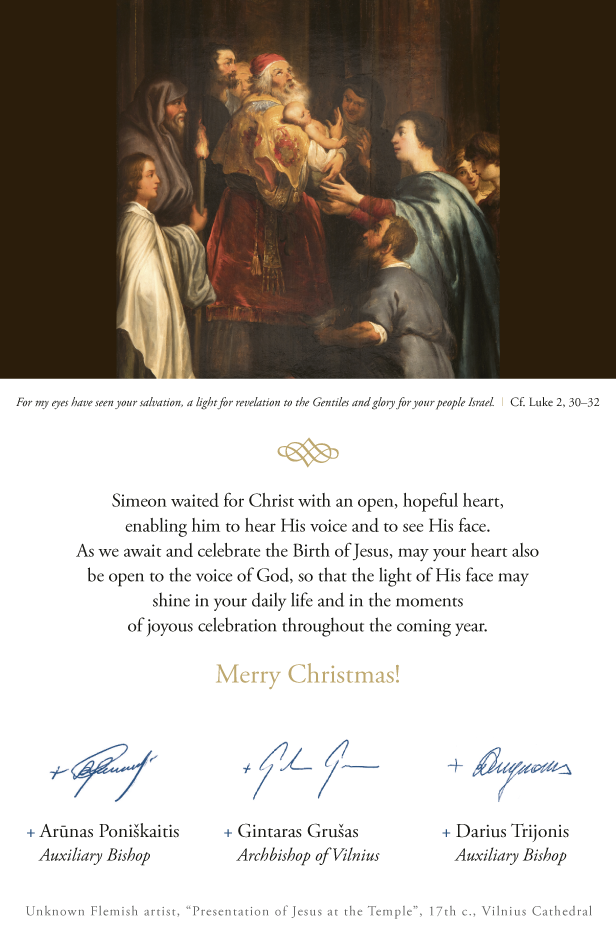
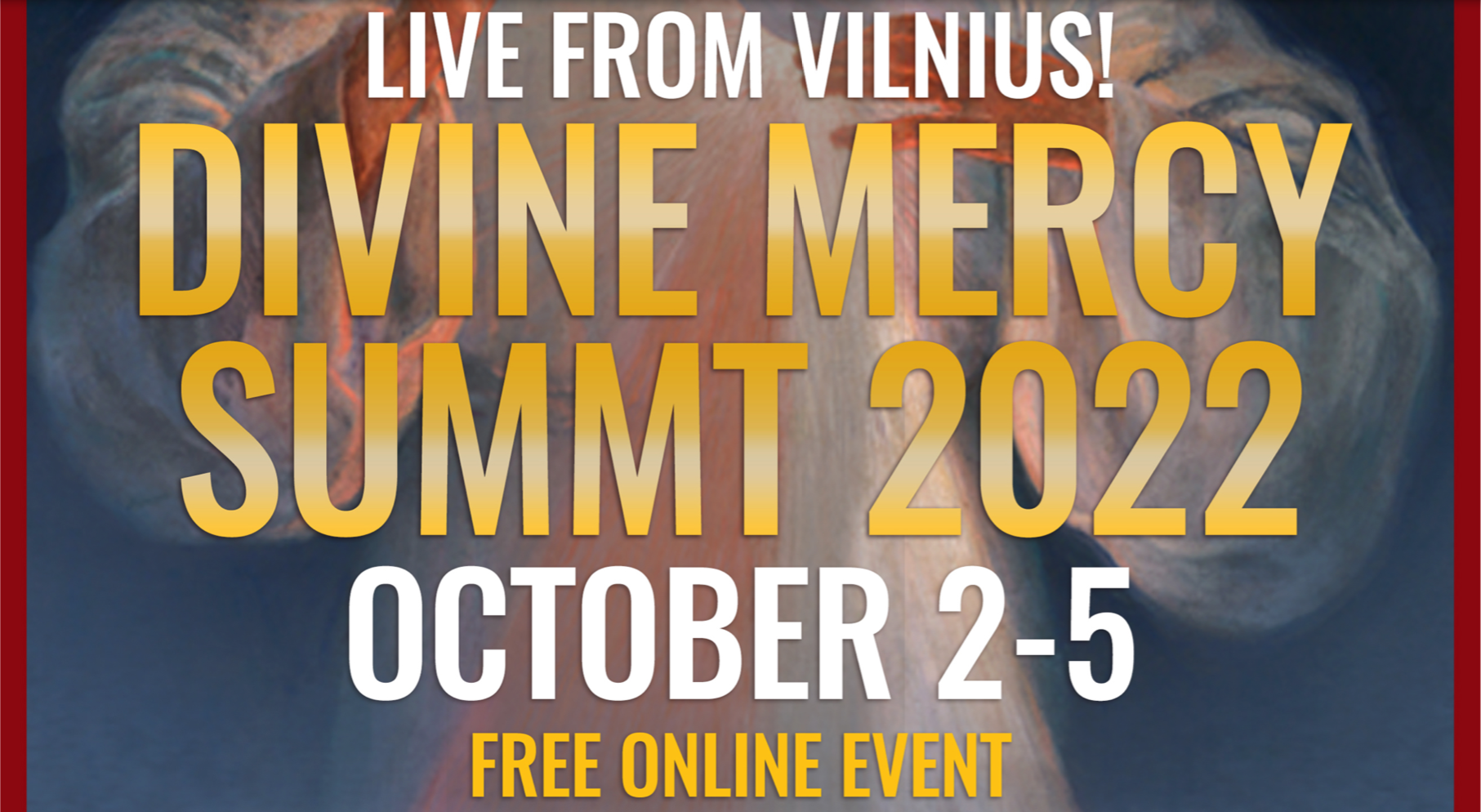

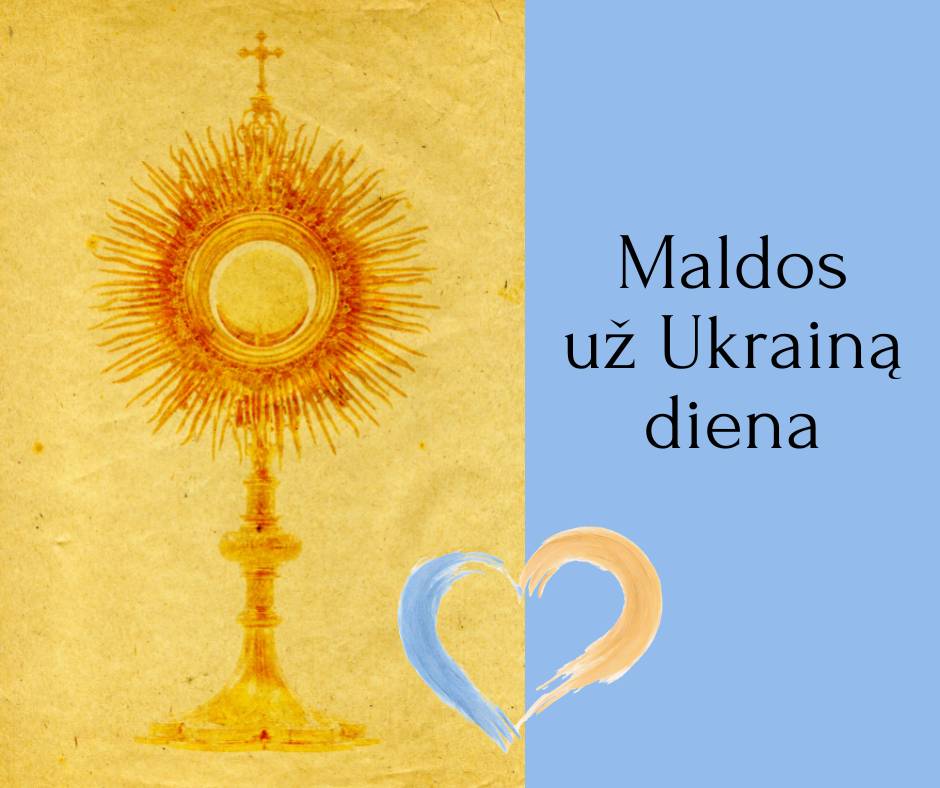
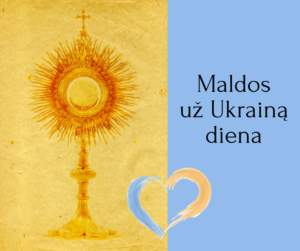 On 14 September, the Feast of the Exaltation of the Holy Cross, following the invite of H. E. Msgr. Gintaras Grušas, Archbishop of Vilnius and CCEE President, a day of prayer will be celebrated to invoke peace for Ukraine.
On 14 September, the Feast of the Exaltation of the Holy Cross, following the invite of H. E. Msgr. Gintaras Grušas, Archbishop of Vilnius and CCEE President, a day of prayer will be celebrated to invoke peace for Ukraine.